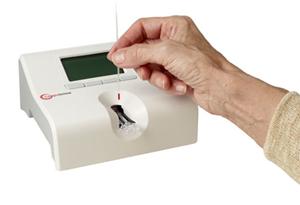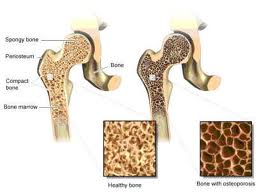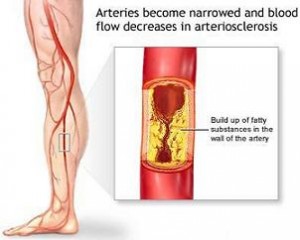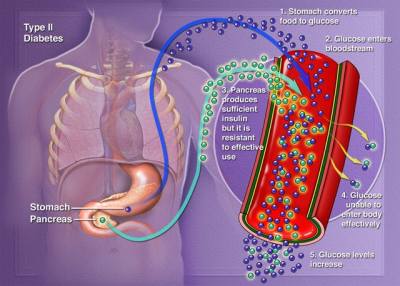Introduction
Notably, this article is regarding news about your heart health. Specifically, February is heart month every year. So I thought why not review what is new regarding heart health in the last 15 years. In addition, this review also puts all the facts into perspective. I will start with a review of the older teaching about heart disease. First thing to remember, there was a paradigm shift in medical thinking. I will explain how this has changed the approach to heart disease prevention. The anatomy of the heart including coronary arteries and the heart valves has not changed over the years. The heart has always been at the center of life and will remain there.
A heart attack can develop from closing of one of the coronary arteries
It used to be thought that when a person ages one should expect to get problems with high cholesterol, which would be the cause of hardening of coronary arteries of the heart until one day the person would experience a heart attack from the closing of one or more of the three coronary arteries. Certainly, cardiologists can then offer an arteriogram, place a stent to reopen any blocked coronary artery and the patient would be OK for another 5 to 10 years. Alternatively, coronary bypass surgery can be offered by a cardiovascular surgeon to revascularize the coronary arteries.
Apart from cholesterol patients can get heart attacks from chronic inflammation
In contrast, in the mid 1990’s all this changed with the realization that 50% of heart attacks happened in patients who had normal cholesterol levels. In fact, research showed that inflammation of the heart vessels starts the process of subsequent blockage that causes heart attacks. A great deal of research in animal models and with humans took place. Indeed, this showed that a lot can be done in the area of prevention of heart attacks. Cure rates can only change very little when damage to the heart muscle has already occurred. The paradigm shift is in the understanding of what leads to a heart attack.
Too much sugar, starchy food and fat cause inflammation of the coronary arteries
We now know that too much sugar, too many starchy foods and too much animal fat will lead to inflammation of the arteries including the coronary arteries. The reason is that faulty nutrition leads to a lack of omega-3 fatty acids and a surplus of omega-6 fatty acids. This starts the inflammatory cycle, which causes inflammation in the arterial walls. Rising LDL cholesterol levels (that’s the bad cholesterol) follow and HDL cholesterol levels (that’s the good cholesterol) fall.
Nitric oxide production necessary to keep coronary arteries open
Associated with this is a lowering of nitric oxide production in the lining of the arterial walls, which leads to a narrowing of the arterial opening and simultaneous development of high blood pressure. Research of the metabolism of cells, particularly the subunits of cells called mitochondria, shed a new light on the heart as well. Mitochondria are the energy producing subunits of the cells. They are abundantly present in those organs that have a high metabolism. These organs are the heart, brain, liver and kidneys.
Life prolonging steps to prevent heart attacks
This newer knowledge allows the prevention-oriented physician to help patients not to get heart disease on the first place. The key is to prevent inflammation of the arteries and to add nitric oxide as a supplement. Also, the physician wants to change the food composition that the patient consumes. In addition, the physician wants to intervene at the mitochondrial level. The patient achieves this with the help of supplements and by a regular exercise program. Over the years there have been impressive clinical trials that show that these preventative means when taken together can add 10 to 20 years of productive life without any disability. In the following I am going to describe the rationale for each of these life-prolonging steps:
Preventing inflammation of the arteries
Preventing inflammation of the arteries: at the moment many people eat the standard North American diet consisting of foods with too much sugar, processed foods with animal fat and lots of pasta. People need to eat a lot of leafy-green vegetables (kale, spinach, Swiss chard) and lean pork, turkey and chicken. this will change the omega-3 to omega-6 ratio in favor of omega-3 fatty acids. This has a powerful effect on your body, as the surplus omega-3 fatty acids will suppress any inflammation in your blood vessels, which prevents heart attacks.
Eat organic foods
If you also eat as much organic food as possible, you will in addition reduce the toxic load in your body from heavy metals like lead and mercury and chemicals like herbicides and insecticides that often are contained in regular non-organic foods. By cutting out sugar and refined carbohydrates fasting insulin levels and triglyceride levels fall. This prevents diabetes and keeps your arteries open longer.
Adding nitric oxide and doing intermittent chelation therapy
By adding nitric oxide as a supplement such as “Neo40” (this supplement has hawthorn and red beet extract in it) the lining of the arteries gets a boost of nitric oxide production. This lowers your blood pressure and widens the arteries in your body including the coronary arteries. The result is more oxygen and nutrients for your heart cells. By intervening at the mitochondrial level with the help of supplements and by doing occasional intravenous chelation therapyto remove heavy metals you can revive the sluggish metabolism of the mitochondria of your major organs. It’s like you are recharging the battery of your car, just here we are dealing with the microscopic energy packages, the mitochondria, in the cells of your vital organs including your heart.
Life prolonging supplements
Certain vitamins and supplements help in this process as follows: D-ribose, alpha-lipoic acid and CoQ10 support mitochondria; niacin lowers triglycerides and LDL cholesterol and elevates HDL-cholesterol (the good cholesterol); magnesium is an important cofactor of many enzymatic reactions in your cells and it also lowers blood pressure by widening the arteries making it easier for your heart to pump blood through them. Omega-3 and vitamin D3 both are anti-inflammatories, which makes these two important supplements for heart attack prevention. Vitamin D3 is also important for your immune system and helps to absorb calcium from the gut. Vitamin K2 has been found to be important to help transport the calcium into your bones preventing osteoporosis, so that it does not stay in your vascular system and cause hardening of your arteries by getting into your arterial walls.
Bioidentical hormone replacement
Bio-identical hormone replacement therapy is a powerful stimulus for the metabolism of your whole body, but particularly your heart. The heart needs adequate amounts of thyroid hormones and sex hormones (testosterone in males, balanced estrogen and progesterone in females). DHEA is a precursor hormone from your adrenal glands that your hormone balance requires for support of your heart muscle. The physician can order hormone tests and replace what is missing with bio-identical hormones.
Regular exercise program
A regular exercise program rounds up your heart support program. A regular exercise program by itself has been shown to be powerful heart attack prevention by cutting heart attack rates into half when compared to a non-exercise control group. Exercise builds up your heart muscle reserves and prevents clogging up of coronary arteries.
Lifestyle changes
Lifestyle changes can have a powerful effect in terms of preventing heart attacks. Everybody knows that those who smoke will not live as long as those who don’t. Smoking accelerates hardening of the arteries and causes not only heart attacks, but also cancer. Perhaps less known is the fact that alcohol can poison mitochondria. The fact that wine contains bioflavonoids is what prevents heart attacks. Statistics show that 1 glass of wine for women and two glasses of wine for men prolong life. The wine industry was quick to exploit these statistics for the benefit of their sales. Fact is that even small doses of alcohol are a cell poison. Bioflavonoids are much more effective when taken as part of your daily supplements (resveratrol capsules) and it is much healthier for your heart and other body parts, if you do not consume any alcohol at all.
Apart from the Framingham Heart Study what we know
Originally the Framingham study showed that high LDL cholesterol was associated with heart attacks. But now we know that it is the overconsumption of sugar, high fructose corn syrup and refined carbohydrates in processed foods as well as animal fat overconsumption (mostly omega-6 fatty acids) that lead to inflammation of the lining of the arteries including LDL cholesterol overproduction from the liver. The focus has switched from lowering cholesterol and triglycerides to reducing and preventing inflammation and to supporting the mitochondria of the heart muscle cells.
Preventing 85% of heart attacks
Simple steps as outlined above have the power to prevent about 85% or more of heart attacks. They work by treating insulin resistance through the diet changes, which in turn lowers fasting insulin levels, blood sugars and triglycerides as well as cholesterol. Inflammation is kept at bay. You prevent heart disease and in addition also arthritis, high blood pressure, strokes and Alzheimer’s disease. One of the side effects is weight loss, extra energy and a sense of wellbeing.
More information on heart disease: http://nethealthbook.com/cardiovascular-disease/heart-disease/















